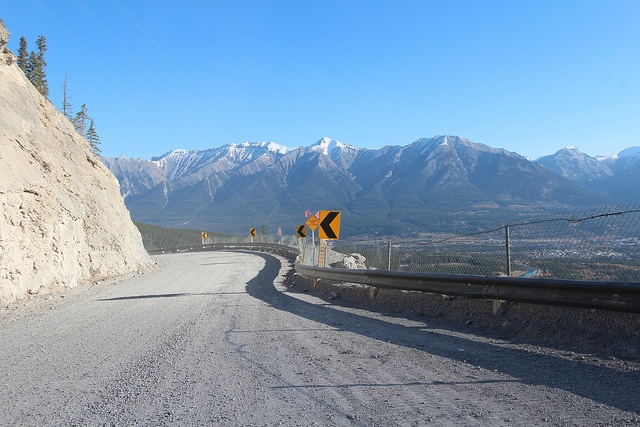After much protest, the government of Newfoundland and Labrador will resume its dust control measures. Is this the start of change on a larger scale?
As VOCM reports, the provincial government of Newfoundland and Labrador closed down its program to use calcium chloride on gravel roads as a means of dealing with dust. The people of the province gave a heartfelt response, demanding that the government reinstate the operation, especially because of the health risks associated with the dust produced by gravel roads.
Specifically, residents complained of health complications from dust, such as asthma. The government’s subsequent decision to resume measures seems to be reassuring when dust continues to be a significant problem for many people across Canada.
What Are They Complaining About?
The World Bank, in their 2011 report, “Quantifying the Impact of Vehicle-Generated Dust,” detailed the environmental and health risks linked to gravel roads.
One of the most damaging effects of road dust is on people’s respiratory health, especially that of young children. As the report detailed, the dust from gravel roads is often fine enough to pass into the lungs and cause serious irritation or damage, especially in children. This inhalation also has a particularly detrimental effect on people with existing respiratory conditions like asthma.
The effects are financial too: the report detailed how crops and livestock are damaged by such dust, lowering the agricultural yields and profits of the nation’s farmers–to say nothing of the welfare of farm animals.
Dust also causes an increased level of danger on roads because of its propensity to obscure vision. The plumes of dust thrown up by a moving vehicle will block or partially interfere with the view of other motorists, causing increased motoring accidents.
What’s the Solution?
While it may be clear that everyone would benefit from eliminating the dust produced by these roads, it’s not likely that administrators will be laying down asphalt on every mile of road anytime soon.
The government systems of Canada and Newfoundland and Labrador, as well as private organizations and individuals, will need to come up with solutions to the problem of gravel roads on a case-by-case basis.
There are a number of factors to consider when selecting the best method for dust control; communities will have varying preferences and particular situations will demand different solutions. Fortunately, today’s market features a number of highly-technical solutions that have evolved to be as dynamic as this issue.
Environment
While there are many products available to solve gravel dust problems, few are environmentally safe. However, there are notable exceptions, and it’s no surprise that a product with a name like Midwest Industrial Supply, Inc.’s Envirokleen® fits the bill.
Envirokleen was the first Synthetic Organic Dust Control® product on the market. Colorless, odorless, and biodegradable, Envirokleen was made in the Midwest lab with a polymeric binder. The resulting, multi-faceted system expertly traps “fugitive” dust, verified by the EPA as completely safe for the environment and its inhabitants.
Though sensitive to its surroundings, Envirokleen is tough enough for industrial jobs: the effect gives pavement-like strength that is actually enhanced by traffic. Cost effective to boot, Envirokleen is affordable and long-lasting, a smart choice for many dust control projects.
Heavy Industry
Many gravel and dirt roads service important industrial areas and plants, meaning that trucks traveling on these roads will, because of their weight, throw up a great deal of dust while operating. This makes a dust-control solution all the more important while necessitating a result that accommodates heavy industrial activity.
The traditional solution to this sort of road usage is to apply asphalt (tar), a practice with a number of well-known, associated difficulties. For example, in hot weather, asphalt will soften, leading to damage to the road surface, inconveniencing the traffic and releasing harmful road dust into the air.
Midwest Industrial’s Road Pro® NTintroduces a polymer into the asphalt emulsion to change its properties so it can withstand the elements and heavy traffic while encapsulating the asphalt and making it more environmentally friendly.
The treated surface is stronger than asphalt on its own, tough enough for industrial trucks, and with a coating that will reduce the amount of dust allowed to enter the atmosphere.
Health
If a community lives very near to a problematic gravel road, the main priority becomes the product’s ability to deal with the dusts that are most harmful to human health.
Midwest’s Soil-Sement® significantly reduces the amount of PM10 and PM2.5 dust particles that are allowed to enter the atmosphere. Both types of particulate matter are very damaging to human health. Soil-Sement deals with them while improving the load-bearing capabilities of the road.
Soil-Sement is a non-toxic co-polymer emulsion that will not damage the environment. Its effectiveness is certified by environmental regulation programs like Canada ETV, US EPA ETV and many others.
It could be said that with modern technology and knowledge of such environmentally safe solutions, the problem of gravel road dust shouldn’t exist for much longer. The Newfoundland and Labrador government learned that the people need a guarantee that their health, safety, and environment will be safe.
With today’s multitude of products available to do the job, the time to take action is definitely now.


